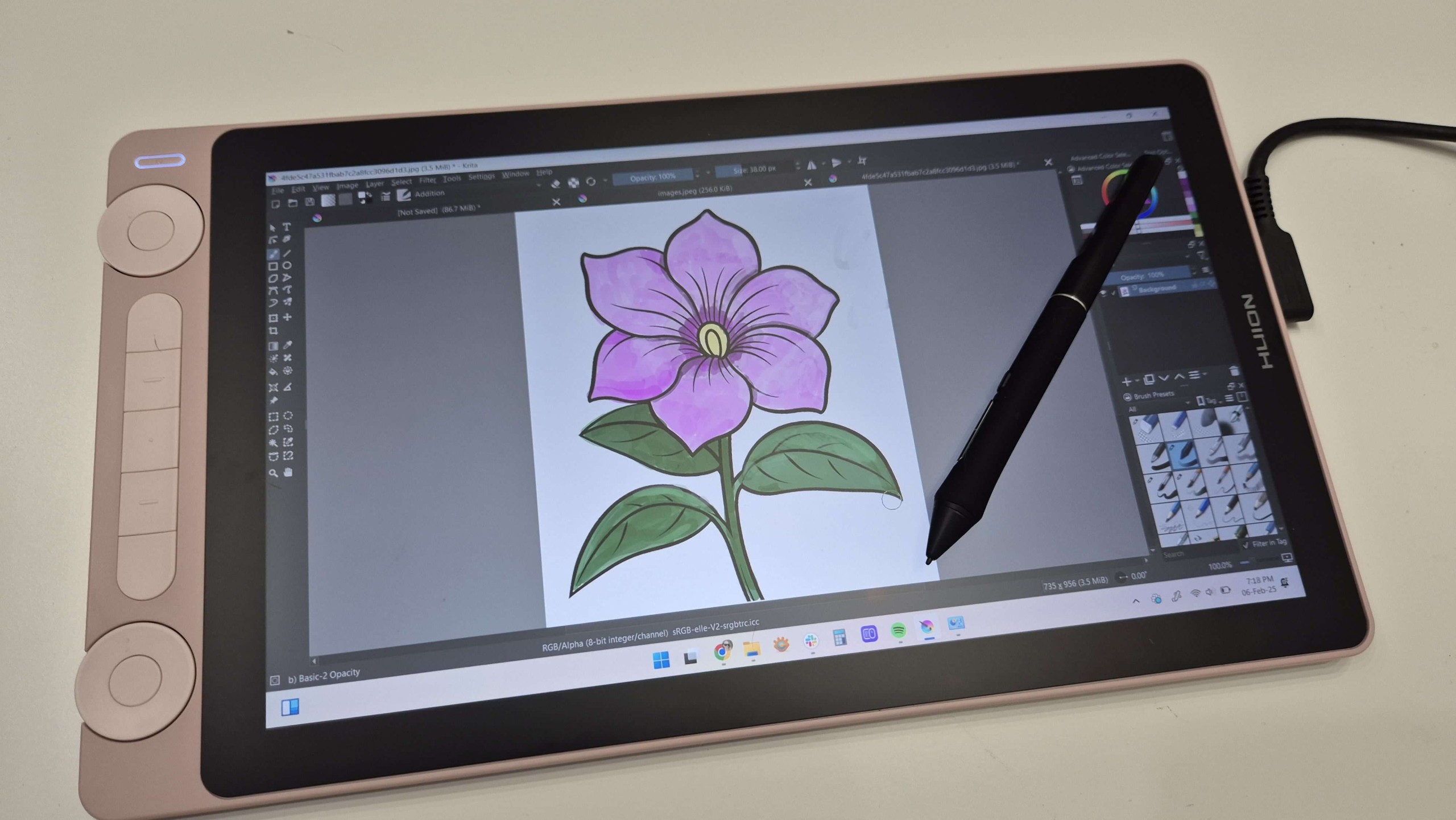
8 Best Soundcards to Buy in 2020 For Pristine PC Audio
Audio quality can make or mar entertainment. While it is essential to have the best soundbars or best headphones for proper output, a great deal of audio processing is done much earlier — in the PC. Almost all motherboards today come with some form of built-in audio, and they have evolved to a point where buyers do not necessarily look out for discrete soundcards. However, onboard audio has a few inherent problems, which can make looking for a dedicated best soundcard a worthwhile effort.
Although most modern motherboards come with some form of EMI shielding, audiophiles can still make out some of the interference that hampers the audio experience. Also, onboard audio is limited in terms of the audio resolution and signal-to-noise ratio unless you opt for a high-end motherboard. This is where soundcards come in.
Soundcards help free up CPU resources and offer a dedicated way of processing audio complete with post-processing effects. They also offer a much superior solution for audio recording and support high-end microphones, which is an important feature for content creators. Soundcards can be internal or external, and both have distinct advantages.
In this article, we will take a look at the 8 best soundcards available on the market today. Creative has been a leader in this segment since the early PC days, so it's not surprising that a majority of the soundcards are from this OEM. Asus and EVGA also have good offerings.
1. Creative Sound Blaster Z
- Features: Included Beamforming microphone; Sound Core3D audio processor; SBX Pro Studio technologies
- Max Channels: 7.1
- Signal-to-Noise Ratio: 116 dB
- Audio Resolution: 24-bit / 192 kHz
- Connectivity: Headphone: 1x Amplified 3.5mm jack; Speaker Out: 3x 3.5mm jacks (F/R/C-Sub); Line/Mic In: 1x shared 3.5mm jack; Optical Out: 1x TOSLINK; Optical In: 1x TOSLINK
The Creative Sound Blaster Z aims to redefine PC audio and is one of the best internal soundcards under $100. The Sound Blaster Z is based on the Sound Core3D audio processor that offers excellent audio reproduction and recording capabilities. The Sound Blaster Z is a more affordable soundcard compared to the Sound Blaster ZxR and, as such, lacks goodies such as replaceable op-amps or daughter boards. The card can be configured to output up to 7.1 channels of discrete surround sound either via analog outputs or via optical-out. Although you cannot customize the op-amps, the default selection should please most users. The dedicated headphone amp can handle impedances up to 600 ohms with ease, enabling the use of studio-grade monitors.
Creative bundles-in the SBX Pro Studio software that drives most functionality of the card. SBX Pro Studio offers various customization options such as a crystallizer, voice enhancements, and preset profiles for different listening modes. Most of these settings work well with movies and games, and you may want to disable them while listening to music. There's also a Scout Mode that gamers will appreciate. Scout Mode makes footsteps and other vital clues more audible to give you an advantage in gaming. Apart from playback, you can also encode audio in Dolby Digital Live and DTS Connect formats or upscale stereo to 7.1 channels. All-in-all, the Creative Sound Blaster Z figures among the best soundcards for gaming if that is your priority.
- Pros: Good performance; Good set of options in the driver
- Cons: SBX Pro effects may not suit the music
2. Creative Sound Blaster X7
- Features: SB-Axx1 audio processor; SBX Pro Studio technologies; 100W stereo amplifier; Bluetooth 4.1; Built-in stereo mic; 600-ohm headphone amp
- Max Channels: 5.1
- Signal-to-Noise Ratio: 127 dB
- Audio Resolution: 24-bit / 192 kHz
- Connectivity: 1 x 1/8 inches Mic In; 1 x RCA Aux/Line In, 1 x TOSLINK Optical In, 1 x TOSLINK Optical Out; 2 x Binding Post Passive Speaker Out (L/R), 1 x RCA Line/Front Speaker Out, 1 x 1/8 inches Rear Speaker Out; 1 x 1/8 inches Center/Sub Speaker Out; 1 x 1/8 inches Headphone Out; 1 x 1/4 inches Headphone Out; USB Host - Audio and Charging
If you are looking for a more flexible external solution, the Creative Sound Blaster X7 deserves a look. The Sound Blaster X7 might seem pricey at first glance, but it offers a lot of features and performance that you may not find elsewhere. The X7 offers an assortment of ports and connectivity options, including Bluetooth and NFC. The Sound Blaster X7 is primarily intended for surround sound, although music lovers stand to gain quite a bit as well though not as much as several external DACs from the likes of Yamaha or Fiio. The X7 comes with onboard Dolby Digital decoding but surprisingly lacks decoding of DTS and high-res audio from Blu-ray discs. Speakers connected to the X7 need their own amplifier. The SB-Axx1 audio processor is capable of 24-bit / 192 kHz audio processing and has a high SNR of 127 dB. The X7 can be connected to a variety of sources, including Android and iOS smartphones, PC, gaming consoles, and more.
Unlike several external DACs, the Creative Sound Blaster X7 offers the option to swap-out op-amps to suit your listening profile. It also offers a built-in 600-ohm amplifier to power your studio monitors. That being said, the X7 may not appeal to everyone. If you are already rocking a capable DAC — internal or external — the X7 offers little in the way of actual sound quality improvements. Creative's software allows for better harnessing the X7's feature set. The Creative Sound Blaster X7 is good for home theater systems or bookshelf speakers. While the X7 is good for gamers and surround sound enthusiasts, the somewhat higher asking price means that you would have to think of your application before committing to this.
- Pros: Good external DAC; Lots of connectivity options
- Cons: Somewhat expensive
3. Creative Sound Blaster Audigy FX
- Features: SBX Pro Studio; Audigy FX control panel; 600-ohm headphone amp
- Max Channels: 5.1
- Signal-to-Noise Ratio: 106 dB
- Audio Resolution: 24-bit / 192 kHz
- Connectivity: 3x 3.5mm speaker outputs for F/C/Sub; 1x 3.5mm line-in; 1x 3.5mm mic-in
More often than not, all that is needed is a neat solution that can output good audio without breaking the bank. The Creative Sound Blaster Audigy FX has aged well by now, but it is still one of the best soundcards you can get under $50. The Audigy FX offers all that you need to convert your mundane PC audio into a capable 5.1 system. The Audigy FX caters to gamers and movie watchers, and it comes with Creative's SBX Pro Studio software and Audigy FX control panel for adjusting various sound parameters. A 600-ohm dedicated headphone amp is included as well if you want to keep things private. Independent line-in and mic-in connectors mean that you can plug-in two different audio inputs simultaneously — perfect for those karaoke sessions.
The Sound Blaster Audigy FX lacks some of the niceties, such as EMI shielding or removable op-amps. The lack of EMI shielding means that it suffers from the same bane as that of onboard audio solutions, but the Audigy FX's DAC more than makes up for the deficit. For the price on offer, it offers unbeatable value if you are looking for an entry-level discrete soundcard upgrade from your motherboard's audio.
- Pros: Good for new users; Highly affordable
- Cons: No EMI shielding
4. Asus Essence STX II
- Features: 600-ohm headphone amp; Three swappable op-amp sockets; Op-amp swap kit; Optional 7.1-channel daughter board;
- Max Channels: 7.1
- Signal-to-Noise Ratio: 124 dB
- Audio Resolution: 24-bit / 192 kHz
- Connectivity: 1 x 6.3 mm jack Headphone-out; 8 x RCA; 1 x 6.3 mm Line-in/ Mic-in combo; 1 x S/PDIF out (1 x Coaxial)
1 x Front-Panel Header
Asus also makes competitive soundcards that cater to audio enthusiasts, and the Essence STX II is one of them. The premium aspirations of the card are evident right in the packaging itself. The Essence STX II usually comes with a daughterboard that enables true 7.1 channel discreet audio, but you may also find the standalone main soundcard as well without the daughterboard. Asus has designed the Essence STX II to those who know what goes on in the circuitry of a soundcard. The card comes with several swappable op-amps that can be changed as per your desired sound signature. In fact, you also get an additional op-amp swap kit complete with two Texas Instruments LME49720s, one MUSES 8820, and a clamp tool. The daughterboard offers even more swappable amps for a truly personalized audio experience. Asus's software driver lets you control various aspects of the card, including channel mixing, preset effects, karaoke, EQ, bass settings, and VocalFX.
With extensive customization options, clean power to the circuitry, and high-quality capacitors, the Asus Essence STX II offers something for every audio enthusiast. The availability of a dedicated headphone amp and a daughter card for true 7.1 channel sound means additional flexibility. However, the Essence STX II does have issues in working with the latest AMD Ryzen processors based on the AM4 platform. We are not sure if Asus has fixed it yet, so this is something you should keep in mind. Those on Intel platforms, however, can reap the full benefits of this card without issues.
- Pros: Good sound; Op-amp swap kit
- Cons: Not compatible with AMD Ryzen
5. EVGA Nu Audio Pro 7.1
- Features: XMOS xCore-200 DAC; Daughter card for 7.1 audio; Made in collaboration with Audio Note UK; Seiryu Azure Dragon capacitors; AVX F95 capacitors; Headphone op-amp; Nahimic Audio; RGB lighting
- Max Channels: 7.1
- Signal-to-Noise Ratio: 123 dB
- Audio Resolution: 32-bit / 192 kHz
- Connectivity: 3x 3.5mm speaker outputs for F/C/Sub; 2x Stereo out (RCA L/R); 6.3mm headphone out; 1x 3.5mm line-in; 1x 3.5mm mic-in 1x TOSLINK out
EVGA has been steadily introducing a slew of soundcards over the past few years. The EVGA Nu was appreciated by many leading the company to develop a true 7.1 channel solution designed for audiophiles and enthusiasts. The EVGA Nu Audio Pro 7.1 builds on the best features of the Nu and adds some nice extras such as removable headphone op-amp and a dedicated daughterboard for true 7.1 channel audio. The packaging is well laid out, and EVGA also includes a mini DisplayPort cable, a 6.3 to 3.5 mm gold-plated adapter, and a dual RCA component male to a single 3.5 mm adapter.
EVGA has collaborated with Audio Note UK, one of the well-known names in the home audio system, for designing the Nu Audio Pro soundcard. The Nu Audio Pro 7.1 features an XMOS xCore-200 audio processor that is complemented by the AK4493 DAC and the AK5572 ADC to offer a 123 dB SNR and Hi-Res audio playback up to 32-bit 192 KHz. The 600 Ohm ADI OP275 headphone amp can be swapped out for an amp of your choice. EVGA uses Nahimic for all the 3D audio enhancements. With such good specs, the EVGA Nu Audio Pro 7.1 makes one of the best soundcards for music production on a PC along with good surround sound for gaming and movies.
- Pros: Good feature set; Removable headphone amp
- Cons: Gets hot
6. Creative Sound Blaster Omni Surround
- Features: Works for both Mac and PC; Sound Core3D audio processor; SBX Pro Studio technologies; Scout Mode
- Max Channels: 5.1
- Signal-to-Noise Ratio: 100 dB
- Audio Resolution: 24-bit / 192 kHz
- Connectivity: Headphone: 1x 3.5mm jack; Speaker Out: 3x 3.5mm jacks (F/R/C-Sub); Line/Mic In: 2x 3.5mm jack; Optical Out: 1x TOSLINK
The Creative Sound Blaster Omni is an excellent external soundcard for both Mac and PC users. The Sound Blaster Omni uses a similar chipset (with some concessions) as the Sound Blaster Z series, which means a certain level of audio quality is guaranteed. The Omni can output discrete 5.1 channels with an SNR of 100 dB. Installing the Sound Blaster Omni is very simple and is just a matter of connecting it to your PC or Mac's USB port and installing the required drivers. It must be noted here that Windows users get to use the Creative Wave Studio software that allows for some neat audio customizations. There is enough number of ports, including a dedicated mic-in, although the Omni includes a built-in microphone.
Sound quality from the Omni is a definite upgrade from most onboard audio solutions with good bass, mids, and highs. However, those using high-power headphones may find the Omni a bit underpowered. The Sound Blaster Omni retails for less than $100, making it one of the best external soundcards for entertainment and gaming.
- Pros: Works with both Mac and PC; Good feature set
- Cons: Trouble in driving very high impedance headphones
7. Creative Sound BlasterX G6
- Features: Works with all popular gaming consoles; Virtual 7.1 channel surround; Discrete headphone amp
- Max Channels: 5.1 / 7.1 Virtual surround
- Signal-to-Noise Ratio: 130 dB
- Audio Resolution: 32-bit / 384 kHz
- Connectivity: 1x Line/Optical-in; 1x Line/Optical-out; 1x headphone-in; 1x mic-in; micro-USB
The Creative Sound BlasterX G6 is an external DAC solution that caters to not only PC users but also to console gamers as well. The Sound BlasterX G6 can connect to popular gaming consoles such as the Xbox One, PS4, and the Nintendo Switch apart from the usual PC and smartphones. The G6 sports a 32-bit / 384 kHz DAC with support for Dolby Digital virtual 5.1, 7.1 channel decoding, and a 130 dB SNR. The Sound BlasterX G6's DAC can significantly elevate your console gaming experience even without needing special gaming headsets. The G6 amplifies the left and right channels independently, which gives a much-needed definition for games that have positional audio. Creative includes a micro-USB and an optical cable in the box.
Console users need not do anything extra to set up the Sound BlasterX G6 as it comes pre-calibrated out of the box. PC users, however, can make use of Creative's Sound Blaster Connect app that allows further customization. That being said, there is no option to carry forward any setting changes onto the console, which we feel would have been a nice functionality. The difference in audio quality when using the G6 should be immediately apparent, especially in games. You can also turn on the SBX audio for a more spatial audio experience. For the price and features on offer, the Creative Sound BlasterX G6 is definitely one of the best soundcards on the market for game consoles and also serves as a nice headphone amp for PC users as well.
- Pros: Great for game consoles; Easy setup
- Cons: No profile roaming between PC and console
8. Creative Sound BlasterX AE-5
- Features: BlasterX acoustic engine; Xamp headphone amplifier; ESS SABRE32 DAC; RGB LEDs; Scout 2.0
- Max Channels: 5.1
- Signal-to-Noise Ratio: 122 dB
- Audio Resolution: 32-bit / 384 kHz
- Connectivity: 3x 3.5mm jacks (F/R/C-Sub); Line/Mic In: 2x 3.5mm jack; Optical Out: 1x TOSLINK
The Sound BlasterX AE-5 is the latest in the series of high-end soundcards from Creative. The Sound BlasterX AE-5 uses a new version of the Sound Core3D chip that is found in the Sound Blaster Z series. The new Sound Core 3D is made with future requirements in mind and supports up to 88.2 kHz playback in Direct Mode and support for virtual 7.1 surround. Complementing the Sound Core3D chip is an ESS ES9016K2M DAC that is usually found in high-end audio equipment. The AE-5 has a dedicated headphone amplifier called the Xamp that separates the left and right channels for independent amplification. You can drive headphones up to 600-ohm impedance on the Xamp that has an SNR of 116 dB. The AE-5 also uses Creative's Aurora RGB lighting system that allows for some neat custom RGB effects that are synced to your motherboard. Creative also includes a 10-LED RGB LED strip that can be connected directly to the card. Using the RGB strip requires additional power via a MOLEX connector.
All functions of the Sound BlasterX AE-5 can be controlled via the SB Connect software. SB Connect provides many presets for popular games, a 10-band EQ, RGB lighting effects, echo cancelation, voice morph, and many other functions. High-end motherboards already offer nearly as high SNR as the AE-5, but those who wish to get the maximum out of their headphones or speaker systems will want to give the Sound BlasterX AE-5 a try. A good feature set and excellent audio output make the AE-5 one of the best soundcards for gaming and music production on a PC under $150.
- Pros: Good quality components; Xamp headphone amplifier; RGB lighting
- Cons: Somewhat expensive
That was our round-up of the best soundcards to buy in 2020 for varied PC audio needs. Remember that you need to assess your audio needs before committing to a soundcard as these days, most motherboards have decent onboard audio solutions. However, if you are into better audio performance for both playback and recording, opting for an internal or external discrete soundcard can have a significant impact on your aural experience.











